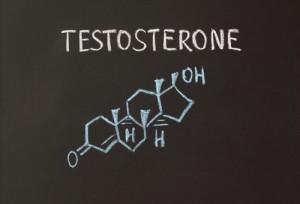Testosterone supplements have found themselves in the news quite a bit lately. Unfortunately, for manufacturers, this is not good news. Because these lawsuits are on the fast track to being a very big deal.
There is a lot of research coming out with a sudden fury that suggests that testosterone treatments for men can cause an increased risk of heart attacks and strokes that can lead to serious injury and death. A study published this week in the medical journal Plos One indicated that researchers found a two-fold increase in the risk of a heart attack in the three months after an initial prescription among men aged 65 years and older and a two to three-fold increase among younger men with a history of heart disease. This is huge, especially considering millions of men are taking these hormonal treatments, and many are learning for the first time of the extent of the risk.
Products in this category are:
- Androgel (Abbvie/Abbott)
- Androderm (Actavis)
- Axiron (Eli Lilly)
- Bio-T-Gel (BioSante and Teva)
- Delatestryl (Indevus)
- Depo-Testosterone (Pharmacia & Upjohn Company)
- Fortesta (Endo)
- Striant (Columbia Laboratories)
- Testim (Auxilum/GlaxoSmithKline)
- Testopel (Auxilium)
Testosterone is a 19-carbon steroid hormone. In men, testosterone plays a key role in the development of male reproductive tissues such as the testis and prostate, as well as promotes secondary sexual characteristics such as increased muscle, bone mass, and the growth of body hair. But it is also for the general health and well-being of a man. Without adequate testosterone, a man may lose his sex drive, experience erectile dysfunction, feel depressed, and have difficulty concentrating.
Unfortunately, many men lose the ability to produce testosterone as they age, and the testosterone levels decrease. This natural decline starts after age 30 and continues throughout life. Besides others, some causes of low testosterone levels can include:
- Injury, infection, or loss of the testicles
- Chemotherapy or radiation treatment
- Dysfunction of the pituitary gland
- Medications, especially hormones used to treat prostate cancer
- Chronic illness
- Stress
- Alcoholism
- Obesity (especially abdominal)
Testosterone is approved for the treatment of hypogonadism due to known diseases of the testes, pituitary, and hypothalamus. Although its use was never approved by the FDA for any treatment other than to treat men who have medical conditions resulting in lower testosterone than normal, the use of the therapy is increasing. Some doctors are quick to prescribe testosterone to middle-aged men complaining of symptoms including loss of energy and libido – so much, in fact, there were over 5.3 million prescriptions written for these drugs in 2011 alone. Sales in 2012 reached nearly $2 billion.
Testosterone drugs currently carry no mention of an increased cardiac risk in their advertising materials; however, this may soon change as the FDA announced a few weeks ago that it is investigating potential testosterone therapy risks. Many men who have experienced problems are already considering filing a lawsuit, so assuming the FDA’s investigation will result in some sort of required warning, we anticipate the lawsuits to be filed at an alarming rate.
If you suspect that you or a loved one has had an adverse reaction to any of these medications, contact our attorneys to find out more as our attorneys are currently reviewing potential lawsuits. If you any concerns, or believe you may have a case, call our attorneys at 1.800.553.8082 or online here.
 Lawsuit Update Center
Lawsuit Update Center



